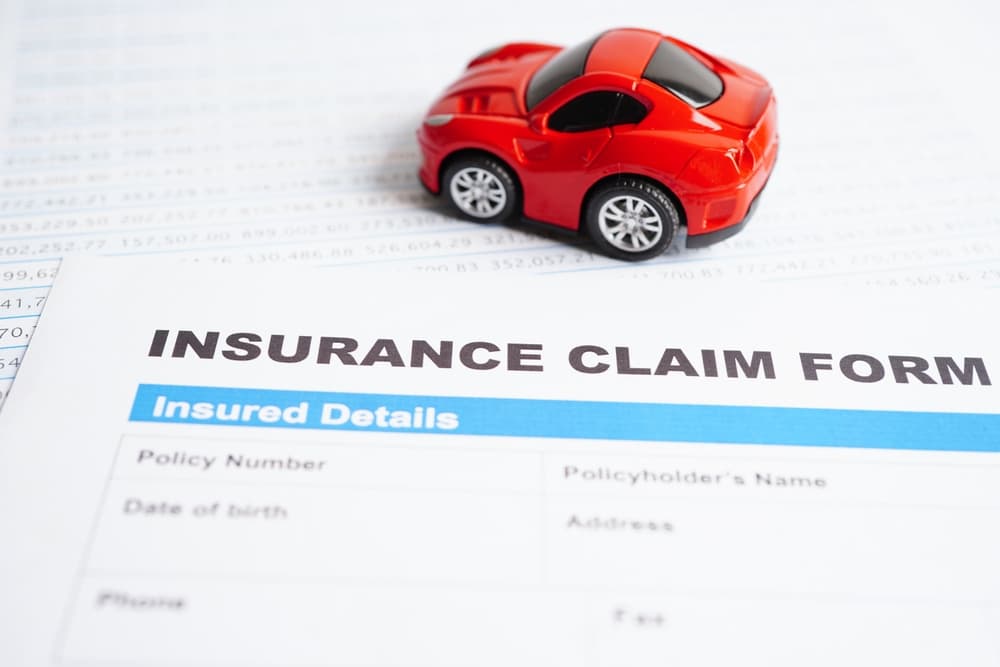Each year, about 400,000 car accidents occur on the roads of Florida. For insurance companies, the personal injury and property damage claims arising from those accidents are routine. Experienced claims adjusters who work for these companies may need just a few minutes to create a settlement offer.
Many claimants are happy to accept those first offers without considering all the implications and potential costs of a case. This is usually a mistake, as there can be serious consequences to accepting an insufficient settlement.
When you receive an initial offer, always think twice. Consult a car accident lawyer first to determine the value of your claim and what a fair settlement should be before you accept anything.
The First Settlement Offer Is Almost Never a Good One

Insurance companies are businesses, and like any other business, their primary goal is to minimize costs and maximize profits. Consequently, the first settlement offer you receive is often a lowball offer designed to settle the claim quickly and cheaply. This initial amount typically does not account for the full extent of your damages, including medical expenses, lost income, and pain and suffering.
At the time you receive the first settlement offer, you may not yet fully understand the extent of your injuries. Some injuries, such as traumatic brain injuries, may not become apparent until days or even weeks after the accident. Settling too early can mean accepting an offer that does not cover all your medical needs or future treatments.
Insurance adjusters train to pressure victims into settling quickly. They might use tactics such as implying that the offer is only available for a limited time or suggesting that this is the best offer you will get. These tactics aim to make you feel you must accept the offer immediately, but this is rarely in your best interest.
The First Offer Is the Starting Point for Negotiations
Before you can effectively negotiate, you need to understand the value of your claim. This involves calculating all your current and future medical expenses, lost income, property damage, and non-economic damages like pain and suffering. Consulting with a car accident attorney can provide you with a clearer picture of what your claim is worth.
The first settlement offer is just that – an offer. It's not final, and you are expected to counter it. An experienced attorney can draft a counteroffer that accurately reflects your incurred damages. The insurance company expects and anticipates this back-and-forth negotiation process.
Having thorough documentation of all damages can significantly strengthen your position in negotiations. This includes medical records, receipts for medical treatments, repair bills for your vehicle, and any other relevant documents. The more evidence you have, the stronger your case will be.
Accepting the Settlement Offer Has Consequences
One of the most critical things to understand about accepting a settlement offer is that it is final. Once you accept a settlement and sign a release form, you forfeit the right to pursue any further claims related to the accident. You cannot seek additional compensation if new symptoms or complications arise later.
By accepting the first offer, there's a significant risk that you will be under-compensated for your injuries and other damages. This can leave you struggling to pay for ongoing medical treatments, rehabilitation, and other expenses not fully covered by the initial settlement amount.
If you accept a settlement offer without fully understanding its implications, you may limit your legal recourse. It's crucial to consult with a car accident attorney before accepting any settlement. Attorneys can offer invaluable advice and ensure you make informed decisions in your best interest. If your lawyer advises you to file a lawsuit, you should do so within the timeframe specified under your state's statute of limitations. In Florida, for example, injured victims have two years from the date of injury to initiate legal action.
Why You Shouldn't Take the Insurer's First Offer After a Car Accident
Understandably, when you struggle physically and financially, any money is better than nothing. For this reason, when the insurance company makes its first settlement offer, many injured victims are tempted to accept it and disregard the consequences. However, here are some of the reasons you shouldn't accept the insurer's first offer:
- It is most likely a lowball offer. Insurance companies are businesses aiming to minimize their expenses. The initial offer they present is often a lowball figure designed to cut costs. They count on you being eager to settle quickly to cover immediate expenses. However, this figure rarely reflects the true value of your claim.
- You do not realize the full extent of your losses yet. The full extent of your injuries and damages may not be immediately apparent immediately after the accident. Some injuries manifest over time, and repair costs can escalate once the mechanics take a closer look. Accepting an early offer prevents you from claiming additional costs that arise later, leaving you financially strained.
- You can get more. The first offer is merely a starting point. Negotiating opens the door to a fairer settlement that accurately reflects your losses and suffering. Individuals who negotiate their claims often receive significantly higher settlements than those who accept the initial offer.
- The insurance company expects you to negotiate a higher amount. Believe it or not, insurance companies anticipate that you will negotiate. They often leave room in their initial offer for this very reason. By not negotiating, you're leaving money on the table – money that can be crucial for your recovery and financial stability.
- You need a minimum figure in your mind before you accept any settlement. Before engaging with the insurance company, having a clear minimum figure is essential – the lowest amount you're willing to accept. Calculate your medical expenses, property damage, lost income, and other relevant costs. This figure gives you a solid foundation for negotiation, ensuring you don't settle for less than what you truly need.
Before accepting the insurer's first offer, speak with an attorney. A car accident lawyer can explain your options more clearly.
Will You Lose Your Right to Compensation if You Reject the Insurance Company's Offer?

Contrary to what some insurance adjusters may suggest, rejecting an initial offer does not mean you forfeit your right to seek fair compensation. In fact, it's often the first step toward ensuring you receive the compensation you truly deserve.
Rejecting an offer opens the door to negotiations, during which you can present additional evidence and argue for a higher settlement. Saying "no" to the insurer allows time to fully evaluate all your medical treatments, lost income, and other damages to ensure thorough consideration.
What Makes a Good Settlement Offer, and When Should You Accept the Insurance Company's Offer?
No "bad" or "good" settlement offers exist, as everyone's situation is unique. What may be a good offer for one person may not be good for another. Accepting a settlement offer can be challenging, especially when you don't have an attorney to guide you toward a favorable resolution of your case. Here are some factors to consider before you accept the insurer's settlement offer:
- Have I fully recovered? If you've fully recovered from your injuries and have a clear understanding of your total medical expenses and losses, you may be in a better position to evaluate the fairness of the offer.
- Is the amount offered fair and sufficient? Accept the offer if it adequately compensates you for all your damages, including medical expenses, lost income, pain and suffering, and other out-of-pocket costs.
- Have I consulted with an attorney? Your attorney can provide professional advice on whether the offer is fair and whether it's in your best interest to accept it or continue negotiations.
- Am I prepared for a long and costly battle ahead? Consider the potential stress and time involved in prolonging the litigation process. If the offer is reasonable and supports your progress, accepting it might be the right choice.
- How am I doing financially and emotionally? Evaluate your emotional and financial situation. It may be worth accepting if the settlement can provide stability and peace of mind.
Suppose you consider these things upon receiving the insurer's first offer. In that case, you are more likely to determine whether you have a good or bad settlement offer on your table.
How to Counter the Insurance Company's First Settlement Offer?

Okay, so you know why you shouldn't take the insurance company's first offer and know that what the insurer offers is insufficient. Now what? How do you counter the insurance company's offer and negotiate a better one? Follow these steps:
- Be patient. The first rule in negotiating a settlement is patience. When making lowball settlement offers, insurance companies count on your anxiety and urgency to settle matters quickly. Instead, take your time to assess your situation and recover. Rushing into a settlement can lead to accepting an offer that doesn't cover all your expenses and losses.
- Ask the insurance company how it calculated the offer. Upon receiving the first offer, ask the insurance adjuster how they arrived at that number. Understanding their calculation methods will give you insight into their evaluation process and highlight discrepancies or undervaluations.
- Get an attorney involved. Navigating the legal complexities of insurance claims can be daunting, particularly when recovering from an accident. A seasoned car accident attorney can represent your interests, protecting your rights.
- Know your starting point. Before making any counteroffers, you need a clear understanding of your damages. A detailed list of your expenses and projected costs helps establish a solid foundation for your counteroffer, ensuring you don't undervalue your claim.
- Submit your counteroffer in writing. Do so in writing when you're ready to counter the initial offer. Present your counteroffer with a detailed explanation of your expenses and damages supported by evidence. This formal approach demonstrates your seriousness and thoroughness, which can compel the insurance company to consider your offer more carefully.
- Ignore ultimatums, scare tactics, and false deadlines. Insurance companies may employ pressure tactics to rush you into accepting a low offer. Recognize these for what they are – strategies to minimize their payout. Stand firm, and don't let these tactics intimidate you.
Remember: you do not have to do any of this alone. If dealing with the insurance company seems too complicated and you don't know how to proceed, you can seek the assistance of a car accident lawyer.
How Can a Car Accident Attorney Help When You Receive a First Settlement Offer?

When the insurance company makes its first settlement offer, and you don't know what to do with it, the best thing you can do is contact a car accident attorney. An attorney can support you in many ways, including:
Determine Whether or Not the Offer Is Fair
Your attorney can review the initial offer and determine if it aligns with your incurred damages. By evaluating the factors relevant to your case, an attorney can provide an informed opinion on whether the initial offer is fair or falls short of covering your true losses.
Assess the True Value of Your Claim
An attorney with experience can gather and analyze all necessary documentation, ensuring they thoroughly assess all damages and losses. This comprehensive assessment helps establish a realistic and justifiable claim value, often much higher than the initial settlement offer.
Negotiate with the Insurer from the Position of Strength
Negotiating with insurance companies can be daunting and anxiety-inducing, especially when dealing with the stress of an accident. Attorneys are skilled negotiators who understand the tactics used by insurers to pay you as little as possible. By negotiating from a position of strength, your attorney can often secure a much higher settlement than you can.
Provide Peace of Mind
The aftermath of a car accident is stressful enough without worrying about legal battles. Hiring an attorney provides peace of mind, allowing you to focus on your recovery while they handle the legal side of things. This peace of mind is invaluable during such a challenging time, helping you confidently navigate the process.
Take Your Case to Court if Necessary
While 97 percent of all personal injury cases settle before trial, there are instances where taking legal action becomes necessary to achieve maximum compensation. Having an personal injury attorney prepared to go to court also signals to the insurance company that you are serious about fighting for the compensation you are entitled to.
We proudly serve Hillsborough County, Pinellas County, Pasco County, Polk County, and its surrounding areas in Florida:
Apex Law Firm - Tampa Office
412 E Madison St Suite 1206, Tampa, FL 33602
(813) 444-5212



